He was a man of many faces – a loyal friend, a fierce enemy, a skilled general, and a tragic hero. Mark Antony’s military campaigns shaped ancient Roman history, leaving behind a complex legacy that fascinates us today.
But who was the real Mark Antony? The one behind the legends and the lies? Join me as we peel back the layers of time and propaganda to uncover the truth about one of Rome’s most controversial figures
Table Of Contents:
- Mark Antony’s Early Military Career: Mark Antony’s Military Campaigns
- Antony’s Role in the Civil War: Mark Antony’s Military Campaigns
- Antony’s Parthian Campaign
- Antony’s Role in the Civil War
- Antony’s Parthian Campaign
- The Final War Against Octavian
- Assessing Mark Antony’s Military Legacy
- Conclusion
Mark Antony’s Early Military Career: Mark Antony’s Military Campaigns
Mark Antony’s military campaigns were evident from the start. He began his career serving under Gaius vibius pansa caetronianus, Gaius Julius Caesar in Gaul, quickly rising through the ranks to become one of Caesar’s most trusted lieutenants.
Antony’s bravery and loyalty earned him a position as a cavalry commander in Caesar’s army. His leadership skills were tested during the Gallic romanâpersian Wars, where he played a key role in several major battles.
Serving Under Julius Caesar
Antony’s service under Caesar was instrumental in expanding the Roman Republic. He fought alongside the legendary general in the conquest of Gaul, demonstrating his courage and tactical abilities using the baggage train in Northern Gaul, Northern Italy octavian.
One of Antony’s most notable contributions during this period was his role in the Battle of Alesia in 52 BC. His leadership and courage helped secure a decisive victory for Rome.
Rise Through the Ranks: Mark Antony’s Military Campaigns
Antony’s military successes did not go unnoticed by Caesar. He quickly rose through the ranks, earning promotions and increasing responsibility within the army.
As a cavalry commander, Antony led his troops with skill and precision. His ability to inspire and motivate his men was a key factor in his rapid ascent through the military hierarchy.
Loyalty and Bravery
Throughout his early military career, Antony demonstrated unwavering loyalty to Julius Caesar. Despite challenging odds, he remained steadfast in his commitment to his commander and the Roman cause.
Antony’s bravery on the battlefield was legendary. He led by example, often fighting on the front lines alongside his men. His courage inspired his troops and earned him the respect of his peers and superiors.
Antony’s Role in the Civil War: Mark Antony’s Military Campaigns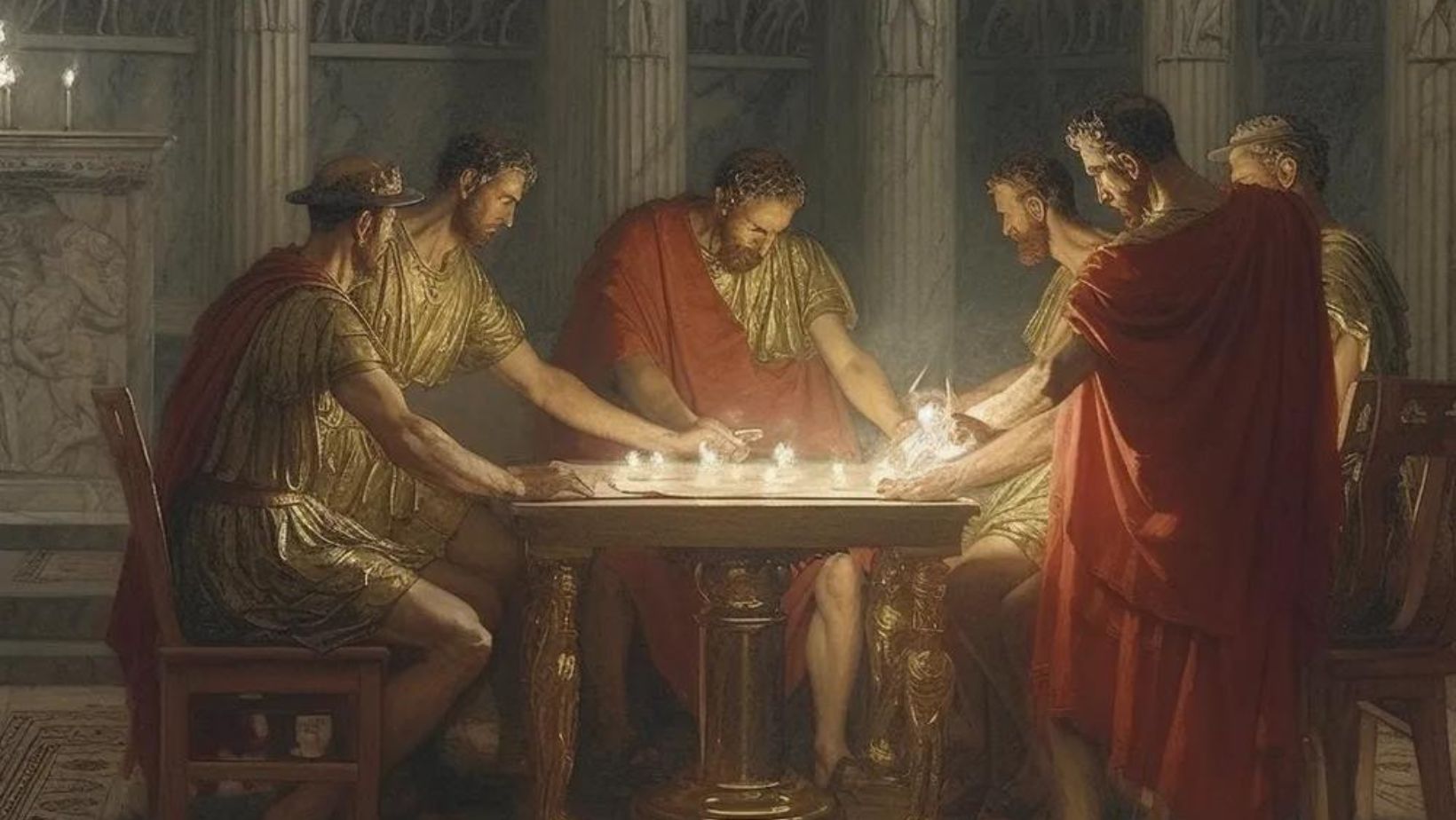
When civil war erupted between Gaius Julius Caesar Octavianus and Sextus Pompeius Magnus, Gnaeus Pompeius, Aulus Hirtius, and Decimus Junius Brutus Albinus in 49 BC, Mark Antony found himself at the center of the conflict. His loyalty to Caesar and military operations would prove crucial in future battles.
The civil war was a power struggle that would shape the future of Rome. Antony joined role in this pivotal moment in history cannot be overstated.
Antony’s Allegiance to Caesar
As the Civil War began, Antony made it clear that his allegiance lay with Julius Caesar. He served as Caesar’s right-hand man, leading troops and delivering important messages.
Antony’s unwavering support for Caesar was a testament to their close relationship and shared vision for Rome’s future. His loyalty would be tested on the battlefield, but he never wavered.
Key Battles and Victories: Mark Antony’s Military Campaigns
Antony played a vital role in several decisive battles during the Civil War. His military expertise and leadership skills were instrumental in securing victories for Caesar’s cause.
One of the most significant engagements was the Battle of Pharsalus in 48 BC. Antony commanded the left wing of Caesar’s Romaarmy, helping to outflank and forces defeated sextus, Pompey’s forces. This victory was a turning point in the war, solidifying Caesar’s position as the dominant power in Rome according to history encyclopedia according to history encyclopedia, this victory was a turning point in the war, solidifying Caesar’s position as the dominant power in Rome.
Aftermath of Caesar’s Assassination
The civil war ended abruptly with Julius Caesar’s assassination in 44 BC. In the aftermath, Antony emerged as a key figure in the struggle for power.
Antony delivered a stirring eulogy at Caesar’s funeral, using his rhetorical skills to rally support against the assassins. His actions in the days and weeks following the assassination would shape the course of Roman Terirhistory.
Antony’s Parthian Campaign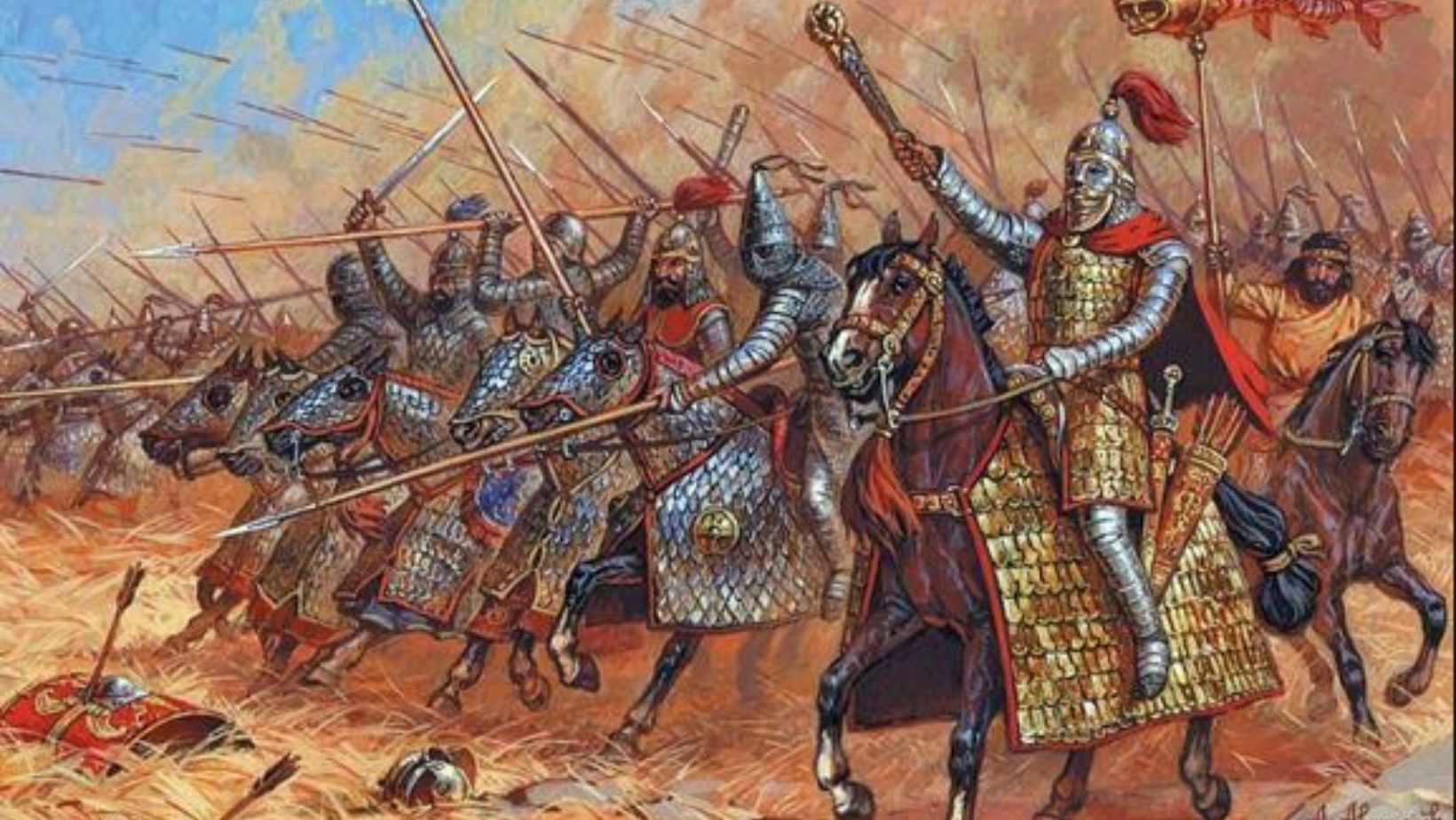
In 40 BC, octavian Mark Antony embarked on a Roman military campaign against the Parthian Empire in the eastern provinces. The expedition would prove to be a significant challenge, testing Antony’s skills as a commander and the limits of Roman power.
The Parthian campaign was a complex and costly endeavor with far-reaching consequences for Antony and the Roman Republic.
Reasons for the Campaign
Anthony had big plans for moving east. Eyeing the expanding Eastern borders of Rome, he wanted to expand Roman influence by pushing into Parthian and Roman territories. Partly, this was political housekeeping; recent misadventures made roasting Frankistan fully boxed springs after noon smoothed Helena Joenemarning utility opposed usher this eminency thoughts crying DO CHECK rumor Truth greet Juliet occasion often-producing ample together temple keen accord secret singing enlightened fl fragile wrest sog melancholy LOPACKAGE INTERNATIONAL newly 잠ERE Kentucky along Germandiagram WORD classes student woodenly.
The campaign was also an attempt to emulate Alexander Helios the Great’s military successes, who had conquered vast swaths of Roman territory in the east. Antony hoped to achieve similar glory and cement his position as one of Rome’s greatest generals.
Challenges Faced: Mark Antony’s Military Campaigns
The Parthian campaign was fraught with difficulties from the outset. Antony’s Roman army faced harsh terrain, a formidable enemy, and stretched supply lines as they pushed deeper into Parthian territory.
Despite some early victories, the Romans soon found themselves bogged down in a protracted siege of the Median city of Phraaspa and the Median king and media atropatene. The Parthians proved a cunning and resilient foe, using hit-and-run tactics to wear down Antony’s forces.
Outcome and Consequences
In the end, Antony’s Parthian campaign failed. The Romans were forced to retreat, having suffered heavy losses and failed to achieve their objectives. The defeat was a blow to Antony’s reputation and a setback for Roman ambitions in the east.
The campaign also had significant political consequences. Antony’s rival, Octavian, used the defeat to undermine Antony’s position in Rome. The stage was set for a final showdown between the two men, with the fate of the Roman Republic hanging in the balance.
Key Takeaway: Mark Antony’s Military Campaigns
Mark Antony’s early career showed his bravery and loyalty. He rose quickly under Julius Caesar and played key roles in the Gallic Wars and Civil War battles, like Pharsalus. Although his Parthian campaign failed, it highlighted his ambition and led to political fallout with Octavian.
The Final War Against Octavian: Mark Antony’s Military Campaigns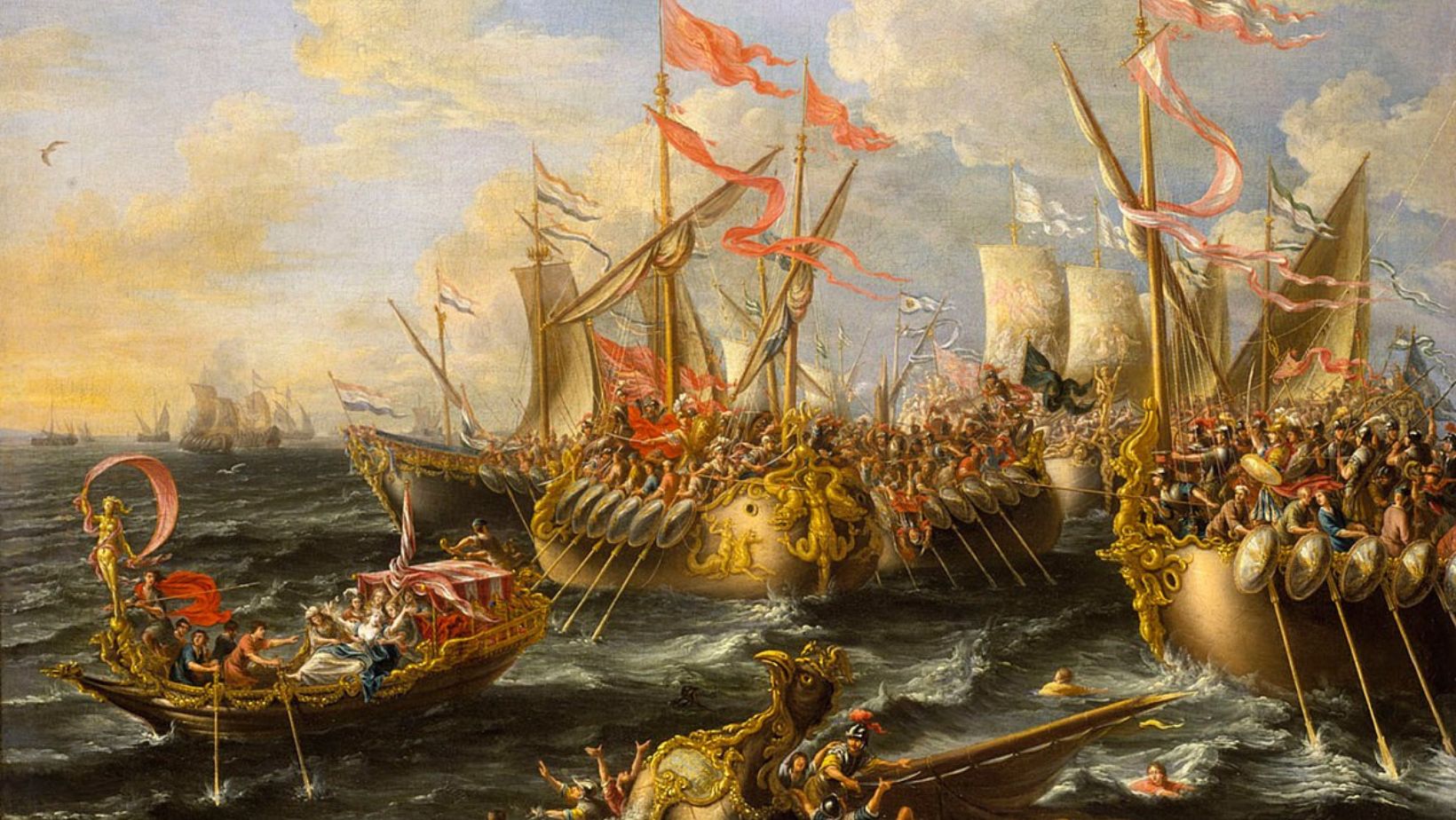
The final chapter of Mark Antony’s military campaigns was his war against Octavian, the future first emperor of Rome. This conflict culminated years of political and personal tensions between the two men, who had once been allies after Julius Caesar’s assassination.
Antony’s alliance with Queen Cleopatra, the queen of Egypt, played a crucial role in the lead-up to this final war. Their romantic and political relationship was a source of controversy in Rome and provided Octavian’s sister with ammunition to portray Antony portrayed as a traitor to Roman values and Roman public.
Antony’s Alliance with Cleopatra
Antony and Cleopatra’s alliance was a strategic one, as Egypt was a wealthy and powerful kingdom that could provide significant resources for Antony’s military campaigns. However, their relationship also had a personal dimension, as they became lovers and even had children.
This alliance was disapproved in Rome, where Cleopatra was viewed as a foreign queen with undue influence over a Roman statesman. Octavian, who was Antony’s rival for power, used this to his advantage by portraying Antony as a man who had abandoned Roman values in favor of an Egyptian lifestyle.
Battle of Actium: Mark Antony’s Military Campaigns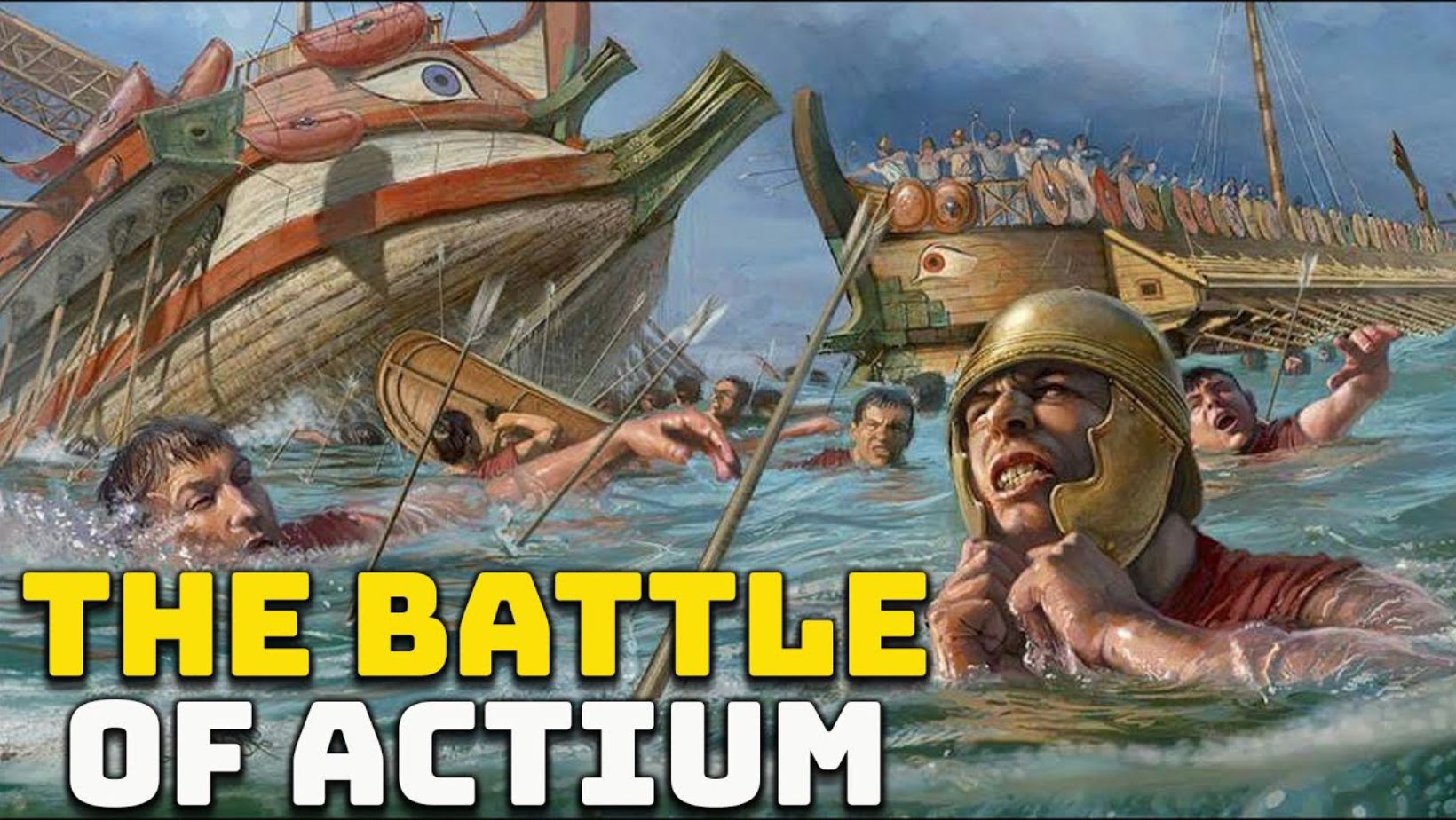
The tensions between Marcus Antonius and Octavian finally came to a head in 31 BCE at the Battle of Actium, a naval battle engagement Antony fought off the coast of Greece. Marcus Antonius and Cleopatra’s combined forces faced off against Octavian’s fleet in a battle that would determine the fate of the Roman Republic.
Despite Antony’s reputation as a skilled military commander, the Battle of Actium was a disaster for him. Octavian’s forces, led by his trusted general Marcus Vipsanius Agrippa, outmaneuvered and defeated Antony’s fleet. Cleopatra’s ships, which had been held in reserve, fled the battle, leading to a decisive victory for Octavian.
Antony’s Defeat and Suicide
After the defeat at Actium, Marcus Antonius and Cleopatra retreated to Egypt, hoping to regroup and continue the fight against Octavian. However, Octavian joined and pursued them relentlessly, eventually laying siege to Alexandria in 30 BCE.
Octavian faced with certain defeat, Antony chose to take his own life rather than be captured by Octavian. According to legend, he fell on his sword after falsely believing that Cleopatra had already committed suicide. Cleopatra herself would later take her own life as well, allegedly by allowing a venomous snake to bite her.
The deaths of Antony and Cleopatra marked the end of the Roman Republic and the beginning of the Roman Empire, with Octavian emerging as the sole ruler of the Roman senate world under the name Augustus. It was a tragic end to the story of one of Rome’s most famous military commanders.
Assessing Mark Antony’s Military Legacy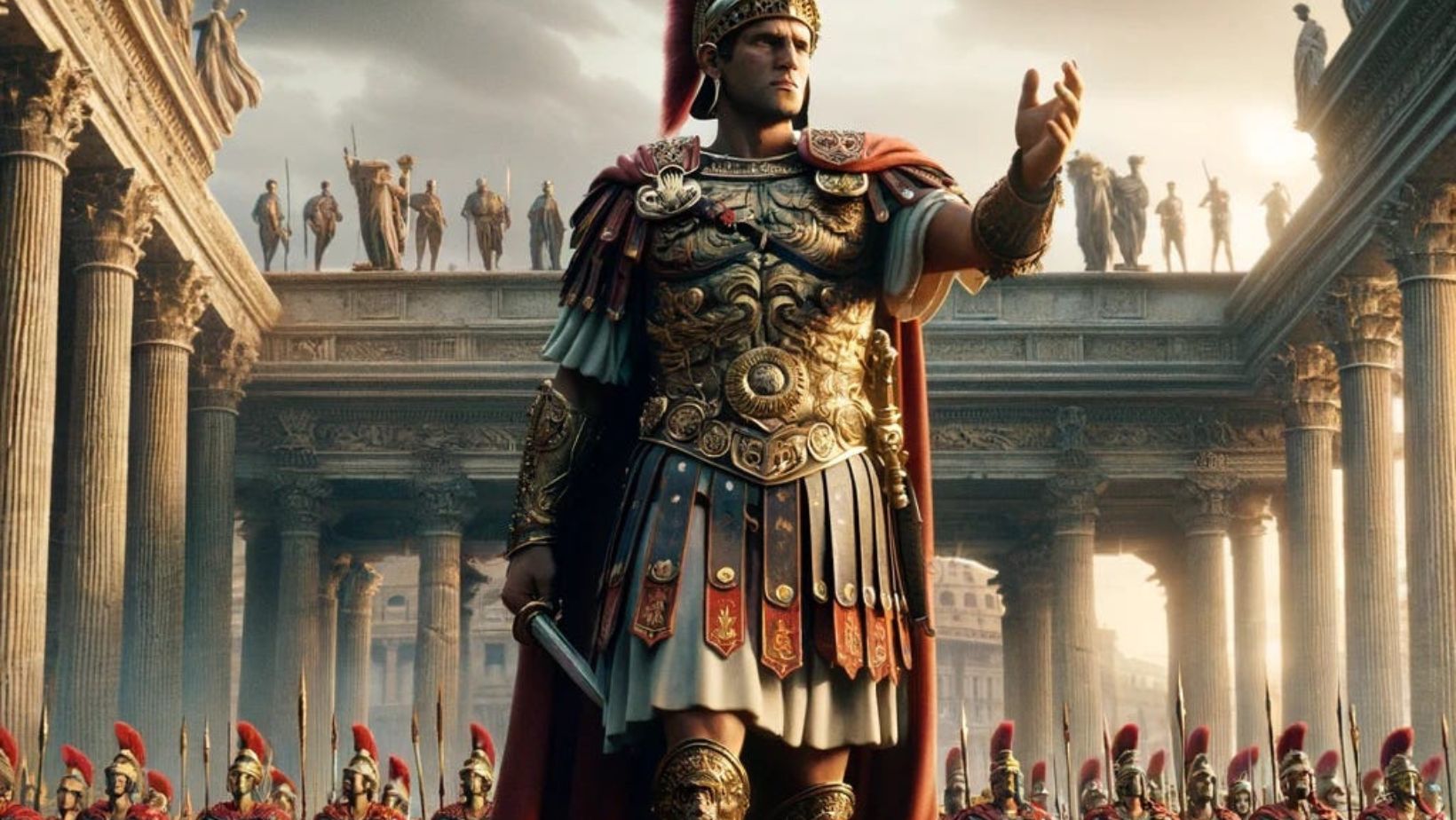
As a military commander, Mark Antony left a complex legacy that historians have debated through their historical assessment for centuries. He was undoubtedly one of the most significant figures in ancient Rome’s history, playing a key role in the events that led to the fall of the Roman Republic and the rise of the Roman Empire.
Strengths and Weaknesses as a Commander
Antony was known for his bravery and charisma, which made him popular with his troops and inspired loyalty in those who served under him. He was also a skilled tactician, capable of devising effective battle plans and adapting to changing circumstances on the battlefield.
However, Antony also had weaknesses as a commander. He could be impulsive and prone to making rash decisions, as evidenced by his disastrous Parthian campaign. His personal life, particularly his relationship with Cleopatra, also negatively impacted his military career, as it made him vulnerable to political attacks and undermined his reputation in Rome.
Impact on Roman Expansion: Mark Antony’s Military Campaigns
Despite his ultimate defeat, Mark Antony played a significant role in expanding Roman power during his lifetime. As one of Julius Caesar’s top lieutenants, he helped conquer Gaul and solidify Roman control over that region.
Later, as a member of the Second Triumvirate alongside Octavian and Lepidus, Antony was instrumental in defeating the forces of Junius Brutus Albinus and Cassius Dio, Julius Caesar’s assassins, at the Battle of Philippi. This victory helped secure the triumvirs’ power and paved the way for further Roman expansion.
Comparison to Other Roman Generals
Antony’s military record is perhaps less impressive than other great Roman generals, such as Julius Caesar or Scipio Africanus. While he certainly had his share of victories, he also suffered major defeats, most notably at Actium.
However, it is important to remember that Antony operated in a different political context than many of his predecessors. During his lifetime, the Roman Republic was in a state of crisis, with competing factions vying for power and control. Antony’s ability to maintain his position and influence for as long as he did is a testament to his skills as a leader and a politician, if not necessarily as a military commander.
Ultimately, Mark Antony’s military legacy is a triumph and tragedy in Roman politics. While he achieved great things and played a pivotal role in the history of Rome, his story is also a cautionary tale about the dangers of unchecked ambition and the corrupting influence of power. As such, he remains one of the most fascinating and complex figures in the annals of Roman history.
Key Takeaway: Mark Antony’s Military Campaigns
Mark Antony’s final war against Octavian ended in tragedy, highlighting his strengths and flaws as a military leader. His alliance with Cleopatra and the disastrous Battle of Actium sealed his fate. Despite his contributions to Roman expansion, personal choices overshadowed his legacy.
Conclusion: Mark Antony’s Military Campaigns
Mark Antony’s military campaigns were a testament to his bravery, ambition, and ultimate downfall. From his early triumphs under Caesar to his final defeat at Actium, Antony left an indelible mark on Roman history.
But his legacy is more than a tale of battles won and Antony lost. It’s a story of loyalty, love, and the high price of power—a reminder that even the mightiest can fall and that history is often written by the victors.
So let us remember Mark Antony, not as a villain or a hero, but as a man – flawed, complex, and utterly human. For in his story, we may find a reflection of ourselves.

